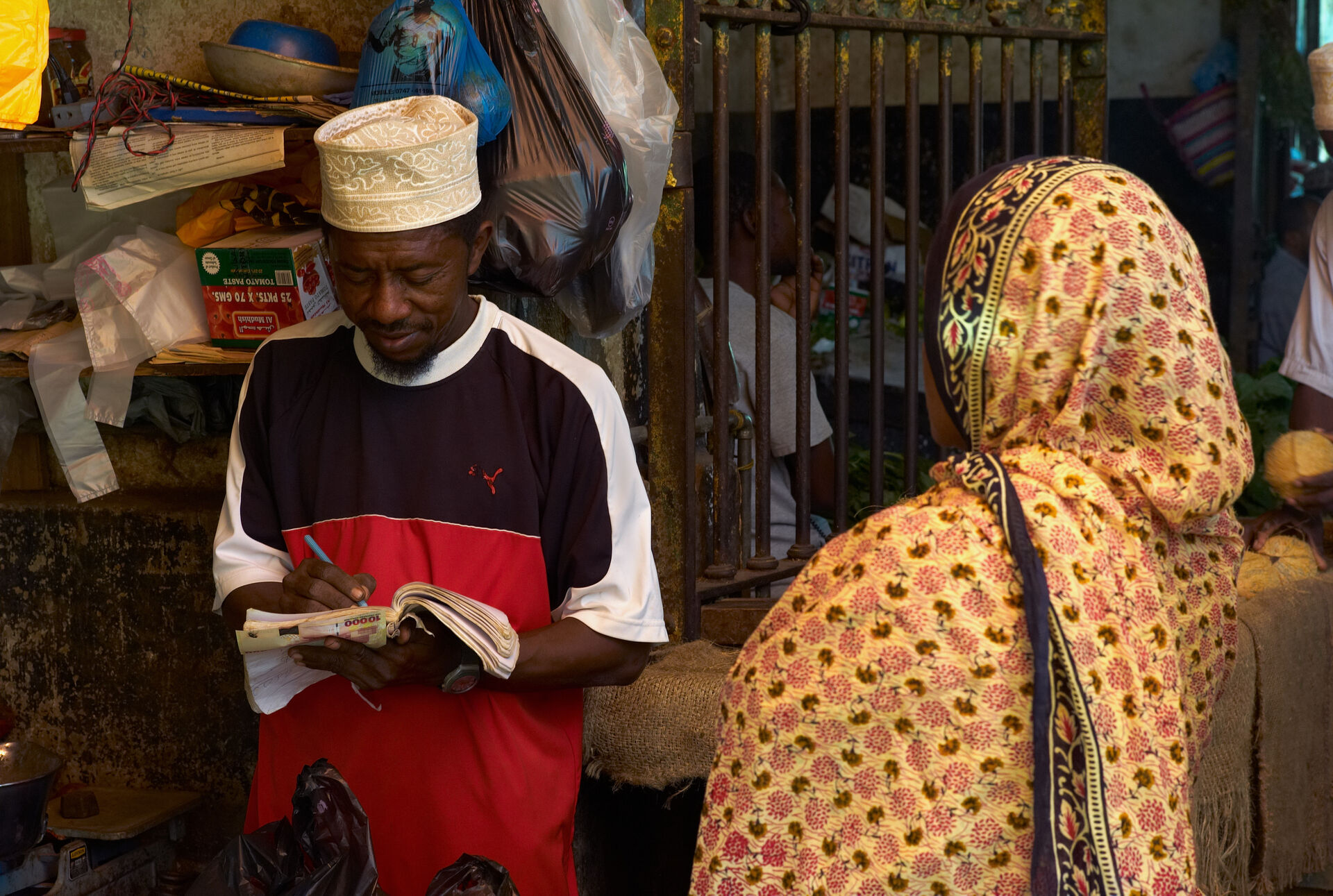
News
Recognizing Small and Medium-Sized Enterprise Digital Payments Gaps in Africa, Part I
by Sabine Mensah, Deputy CEO - 12 September 2024

Did you know that only 35% of payments received by surveyed Small and Medium-sized Enterprises (SMEs) in Sub-Saharan Africa are digital? While many of us mindlessly pull out a card or our mobile phones to make payments, we often take for granted that this convenience depends on businesses accepting them. World Bank Enterprise Survey data shows that only 35% of payments received by surveyed SMEs in Sub-Saharan Africa were digital. End-user research conducted by AfricaNenda for our annual State of Inclusive Instant Payments in Africa (SIIPS) report finds that many merchants can’t or won’t accept digital payments due to various factors.
The need for more attention on SME payment adoption was one of the themes of the Visa Payment Forum I attended in Istanbul from May 14-16, 2024. Though this event took place months ago, the challenges discussed remain relevant. Finance and development experts in Africa are highly attuned to the need for greater inclusion for the more than 400 million African adults who do not have financial accounts, either with a bank or with a mobile money provider. The millions of SMEs in Africa with no or inadequate access to formal financial services present a related – and in some ways, a compounding – challenge. Representing an estimated 80 percent of jobs across the continent—including self-employment for solo entrepreneurs or small business owners—SMEs are important enablers of economic growth and thus warrant more focused attention. In an increasing digital economy, the acceptance of digital payments by SMEs is a critical contributor to their capacity to grow, to compete and to leverage embedded finance for access to capital.
At the Visa event, we discussed many barriers to inclusion for SMEs, but three systemic issues involving three distinct actors resonated particularly for me when thinking about Africa. These issues are the lack of connectivity to electricity, telecommunications, and transport networks; the lack of SME financial sector expertise to competently evaluate SME credit risk; and a lack of digital literacy among SME owners. Let’s examine them one at a time.
1. Lack of Utility Connectivity
In discussions about making financial services available to everyone in Africa, we talk a lot about the need for widespread digital payments infrastructure, including inclusive instant payment systems, which are part of the essential digital public infrastructure (DPI). But for so many on the African continent, payments infrastructure is still a few degrees of separation from where they are. Specifically, less than half of Africans, or 43%, have reliable access to electricity, according to the World Bank. An even smaller share has access to reliable transportation. The World Bank estimates that these factors alone can increase production costs by up to 40% in Africa, affecting the competitiveness of SMEs. The GSMA estimates that around 45% of Africans have access to mobile networks.
Lack of infrastructure adversely affects businesses in that without reliable electricity, they cannot invest in perishable inventory or operate at predictable hours. Similarly, without transportation, businesses cannot get supplies, and neither employees nor customers can get to the business. Additionally, a lack of mobile network access prevents businesses from offering digital payments due to unreliable connections, and also prevents them from using the internet to market their services or narrow information gaps. Even in areas that have mobile access, the connection may not be reliable—SIIPS end-user research in multiple countries has found that individual customers and SMEs often have bad experiences with dropped payments.
2. Lack of Financial Sector Expertise
When I started my career as a financial analyst managing short-term lending facilities for SMEs at a commercial bank in Burkina Faso, the perception was that these customers were risky. Financial service providers often don’t have enough information about SMEs to properly assess risk in a differentiated way. Lending officers don’t understand the business itself; the entrepreneurs often do not have a transaction history on which to base credit risk decisions, and they don’t have collateral to offset the risk they pose to lenders. The list goes on.
This challenge was laid bare during the forum’s dinner event, when I sat next to an executive at a commercial bank in Zimbabwe as we discussed the challenge of extending credit to SMEs. My interlocutor said that institutions face significant constraints in scaling operations and upgrading technological capacities needed to adopt newer, data-driven risk assessment methods.
Despite the emerging methods for using alternative data to develop innovative credit risk profiles, most traditional lenders still use the same approaches to assess risk that I used early in my career. This contributes to the $136-$170 billion financing gap that African SMEs face, according to the International Finance Corporation. Continuing with business as usual will mean more and more SMEs remain excluded from formal financing in Africa.
3. Lack of Digital Literacy in Entrepreneurs
While individual SME owners can do little to influence whether big infrastructure projects reach their communities, those that do have access need the skills and confidence to use digital platforms.
Oliver Jenkyn, Visa Group President, Global Markets, highlighted this fact when he spoke about the impact of mega trends on the future of payments. He noted that the accelerating rate of technology innovation and adoption has brought more changes to the payments sector in the past five years than we saw in the previous 50. Combined with the exponential development of mobile technology in Africa, SMEs are operating in a completely different environment today than they were just a few years ago and require a new set of behaviors and skills. One of those skills is adaptability, because change is not slowing down; indeed, many of the skills necessary today will likely be obsolete five years from now. There is already a significant skills gap in entrepreneurship training in Africa. According to the African Development Bank, only about 5-10% of the labor force in sub-Saharan Africa has received vocational training.
These challenges and more have compounding effects on SME owners’ ability and willingness to evolve from informal to formal business, let alone progress to full digitization, including embracing digital transactions. Given the critical role they play in their economies—and the opportunity they present to payment system providers—it is well worth exploring ways to focus on the SME opportunity and lower these barriers.
I will offer ideas for doing so in Part II of this blog series.


